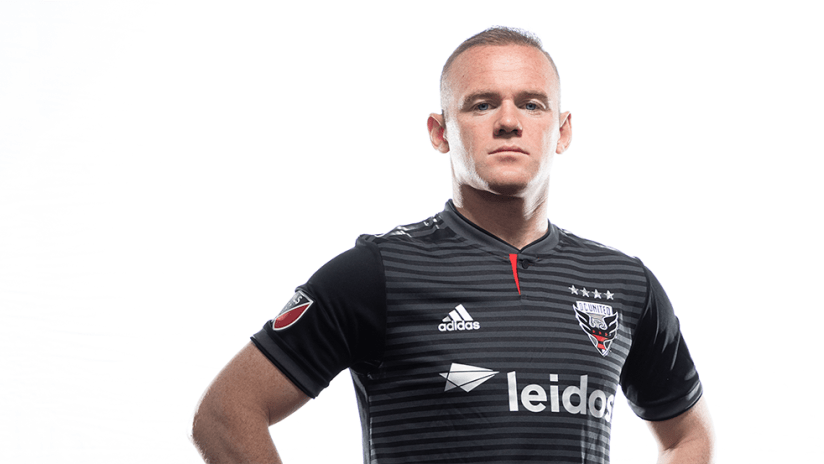WASHINGTON, D.C. – There’s a famous song all Everton fans know, one Wayne Rooney no doubt memorized growing up in the blue half of Liverpool, long before making his pro debut for the Toffees at age 16.
While Liverpool FC are the more decorated Merseyside club, “Grand old” Everton are the originals. “And if you know your history,” the song exclaims, they’re the only club.
It’s worth noting that context – as well as Rooney’s general upbringing in one of the most football-rich cities in all of Europe -–as he arrives at D.C. United as their second Designated Player and most expensive signing to date.
“He’s a tough-as-nails competitor,” says D.C. United general manager Dave Kasper. “He’s a bit of a throwback.”
While the MLS move will be radically different from anything Rooney has previously experienced, he insists he’s not here to transform the identity of the club, but to restore it to its former glory. He arrives days ahead of the opening of D.C.’s brand-new stadium, Audi Field, and represents an increased level level of financial investment by the Black-and-Red.
“I think the club has got great history, and it’s been tough over the last few years,” Rooney said. “And the club needs to look back at the history it’s got and it needs to try and create more history.”
Rooney will wear the No. 9, a jersey he has never donned in his club career and one that suggests a desire to assimilate to D.C.’s culture rather than his own.
For one thing, he could’ve easily asked for the No. 10 from Luciano Acosta, a gifted playmaker but one yet to put his stamp on the Black-and-Red in the same way as their early greats.
For another, the No. 9 may carry even more historical cachet at D.C. Jaime Moreno wore it in his first D.C. tenure before returning to wear No. 99. The reason he didn’t take No. 9 back? It had been given to Freddy Adu, then a 14-year-old whom many thought would conquer the world of football in a way Rooney largely did.
“That was one of the first things we asked him at dinner,” said D.C. co-owner and CEO Jason Levien. “When he came to Washington last month, we said ‘We know you’ve been No. 10, how do you feel about this? He said, ‘No, I want to fit in. What’s the right number for me? You guys let me know.’ It’s all been that way.”
That’s not to say Rooney won’t be taking a leadership role, and perhaps even acting as a manager of sorts on the field. But there’s a difference between wanting to be a club’s driving force and wishing to fundamentally alter it. Rooney appears to have little interest in the latter.
“I have to adapt to whatever, however the club is ran,” Rooney said. “I’m not going to come in and say I want this change and I want that change. I’ll adapt to the way the club is ran and embrace it, and I look forward to doing that.”













